Impact of Globalization on Islamic Family Values
Introduction
Globalization, characterized by the rapid exchange of ideas, culture, and economic practices across borders, has significantly impacted various aspects of life, including family values. In the context of Islamic family values, globalization presents both challenges and opportunities. This article explores the impact of globalization on Islamic family values, examining the ways in which these traditional values are being influenced, preserved, or altered in the contemporary world.
Defining Islamic Family Values
Islamic family values are deeply rooted in the teachings of the Quran and the Sunnah (traditions of the Prophet Muhammad). The family is considered the cornerstone of Islamic society, emphasizing mutual respect, responsibility, and the nurturing of moral and ethical values. Central to these values are the concepts of Mawadda (affection), Rahmah (mercy), and Sakinah (tranquility). These principles guide the relationships as described in the Quran: “And among His signs is this, that He created for you mates from among yourselves, that you may dwell in tranquility with them, and He has put love and mercy between your hearts. Verily, in that are signs for those who reflect” (Quran, 30:21)1. These principles guide the relationships between spouses, parents, and children, fostering a supportive and loving family environment.
The Influence of Global Media
One of the most significant impacts of globalization on Islamic family values is the pervasive influence of global media. Television, internet, and social media platforms expose Muslim families to diverse cultural norms and lifestyles that often contrast sharply with traditional Islamic values. For example, the portrayal of relationships, gender roles, and individualism in Western media can influence young Muslims' perceptions and behaviors, leading to potential conflicts within the family unit.
According to Islamic scholar Yusuf Al-Qaradawi, the exposure to non-Islamic cultural norms through media can weaken the adherence to Islamic teachings and values, particularly among the youth. Al-Qaradawi argues that while some aspects of global culture may appear appealing, they often promote values that are at odds with Islamic principles such as modesty, family cohesion, and respect for elders2. The challenge lies in balancing the beneficial aspects of global media, such as access to information and education, with the need to preserve Islamic values.
Economic Factors and Family Dynamics
Globalization has also brought about significant economic changes that affect family dynamics in Muslim societies. Increased opportunities for employment and education abroad have led to the migration of many family members, resulting in the phenomenon of transnational families. While economic benefits such as remittances can improve living standards, physical separation can strain family relationships and disrupt traditional family roles.
Islamic jurisprudence emphasizes the importance of maintaining close family ties and fulfilling familial obligations. The Quran states, “O mankind, fear your Lord, who created you from one soul and created from it its mate and dispersed from both of them many men and women. And fear Allah, through whom you ask one another, and the wombs. Indeed, Allah is ever, over you, an Observer” (Quran, 4:1)3. Additionally, various Hadiths emphasize the importance of maintaining family ties, such as the saying of the Prophet Muhammad (peace be upon him), “Whoever severs the ties of kinship will not enter Paradise” (Sahih Bukhari, Hadith 5984)4. The challenge for Muslim families in the context of globalization is to find ways to uphold these obligations despite geographical distances.
Education and the Transmission of Values
Education plays a crucial role in the transmission of Islamic values from one generation to the next. Globalization has led to the adoption of Western educational models in many Muslim-majority countries, which can sometimes marginalize Islamic teachings and values. However, there is also an opportunity to incorporate global knowledge and skills while reinforcing Islamic education.
According to the Prophet Muhammad (peace be upon him), seeking knowledge is obligatory for every Muslim: “Seeking knowledge is an obligation upon every Muslim” (Sunan Ibn Majah, Hadith 224)5. Islamic educational institutions and parents must work together to ensure that children receive a balanced education that combines contemporary knowledge with a strong foundation in Islamic principles. This can be achieved by integrating Islamic studies into the curriculum and encouraging children to learn about their faith alongside modern subjects.
The Role of Technology in Family Communication
Advancements in technology, a key aspect of globalization, have transformed the way families communicate. Social media platforms, video calls, and instant messaging allow family members to stay connected despite physical distances. This can help maintain family bonds and support networks, which are essential in Islam.
However, excessive use of technology can also lead to decreased face-to-face interactions and a potential weakening of family relationships. Islamic teachings encourage moderation and the mindful use of technology to ensure that it enhances rather than detracts from family cohesion. The Quran advises moderation in all aspects of life: “And those who, when they spend, are neither extravagant nor niggardly, but hold a medium (way) between those (extremes)” (Quran, 25:67)6. Therefore, families should strive to use technology in a way that supports their relationships and does not replace meaningful personal interactions.
Cultural Exchange and Identity
Globalization facilitates cultural exchange, which can enrich Muslim societies by exposing them to diverse perspectives and practices. However, it can also lead to cultural homogenization and the erosion of distinct Islamic cultural identities. For Muslim families, the challenge is to engage with global cultures while preserving their Islamic identity and values.
The Quran emphasizes the importance of cultural diversity and the recognition of different communities: “O mankind, indeed We have created you from male and female and made you peoples and tribes that you may know one another. Indeed, the most noble of you in the sight of Allah is the most righteous of you. Indeed, Allah is Knowing and Acquainted” (Quran, 49:13)7. Muslim families can benefit from global interactions by learning from other cultures while upholding their own values and traditions. This approach can foster mutual respect and understanding, contributing to a more harmonious global community.
Legal and Social Challenges
Globalization brings about legal and social challenges that can impact Islamic family values. For example, the spread of international human rights standards can sometimes conflict with traditional Islamic practices related to family law, such as marriage, divorce, and inheritance. Navigating these differences requires a nuanced understanding of both Islamic jurisprudence and international legal frameworks.
Islamic scholars and jurists must engage in continuous dialogue to address these challenges, ensuring that Islamic family values are upheld while also respecting global human rights norms. As noted by Mohammad Hashim Kamali, a prominent scholar of Islamic jurisprudence, it is essential to interpret Islamic law in a way that is responsive to contemporary issues while remaining faithful to its core principles8. This approach allows for the preservation of Islamic family values in a globalized world, ensuring that they remain relevant and respected.
Conclusion
Globalization presents both challenges and opportunities for Islamic family values. While it exposes Muslim families to diverse cultural norms and economic changes, it also offers opportunities for education, technological advancements, and cultural exchange. The key to preserving Islamic family values in a globalized world lies in striking a balance between embracing beneficial aspects of globalization and maintaining a strong commitment to Islamic principles. By doing so, Muslim families can navigate the complexities of the modern world while upholding their faith and values.
References
1. The Quran, Surah Ar-Rum, 30:21.
2. Yusuf Al-Qaradawi, The Lawful and the Prohibited in Islam, (American Trust Publications, 1994), p.45-46.
3. The Quran, Surah An-Nisa, 4:1.
4. Sahih Bukhari, Hadith 5984.
5. Sunan Ibn Majah, Hadith 224.
6. The Quran, Surah Al-Furqan, 25:67.
7. The Quran, Surah Al-Hujurat, 49:13.
8. Mohammad Hashim Kamali, Principles of Islamic Jurisprudence, (Islamic Texts Society, 2003), p.376-378.
About the author: Dr. Fatimah binti Karim is an Assistant Professor of Department Fiqh and Usul al-Fiqh, at the International Islamic University Malaysia (IIUM), Kuala Lumpur.
Disclaimer
The views expressed in this article are the author’s own and do not necessarily mirror Islamonweb’s editorial stance.

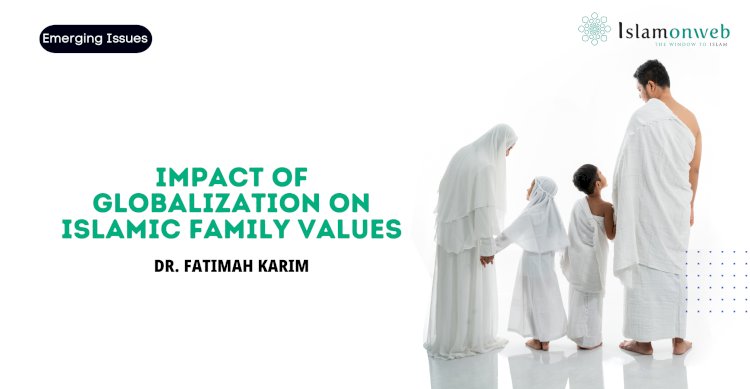


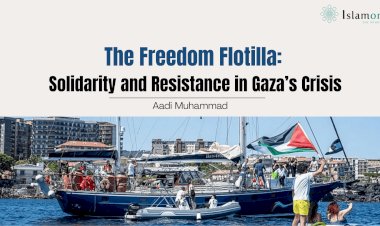
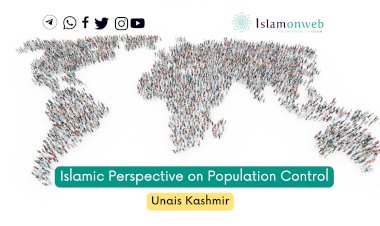
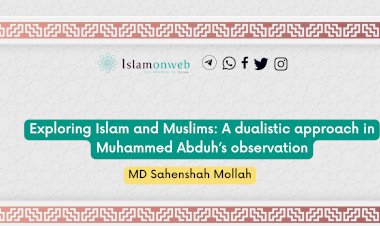


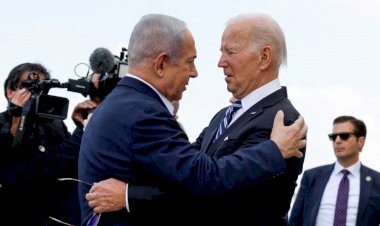














Leave A Comment